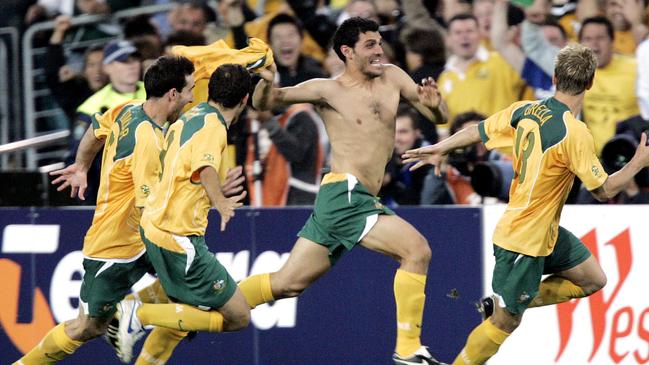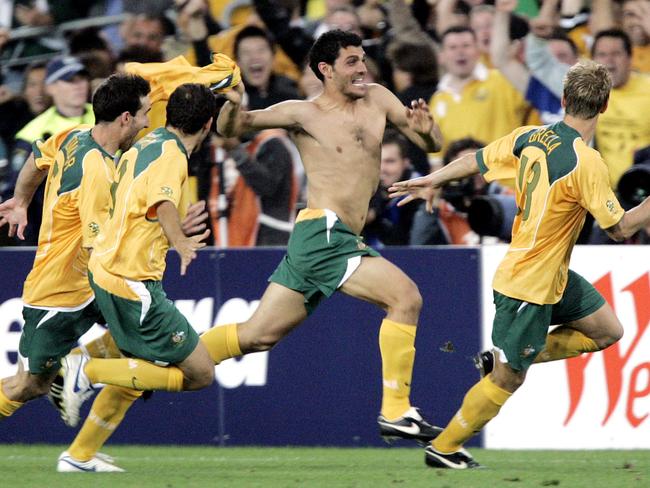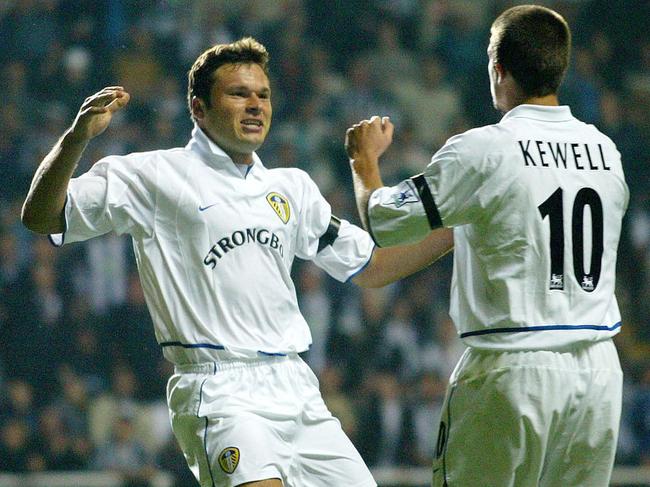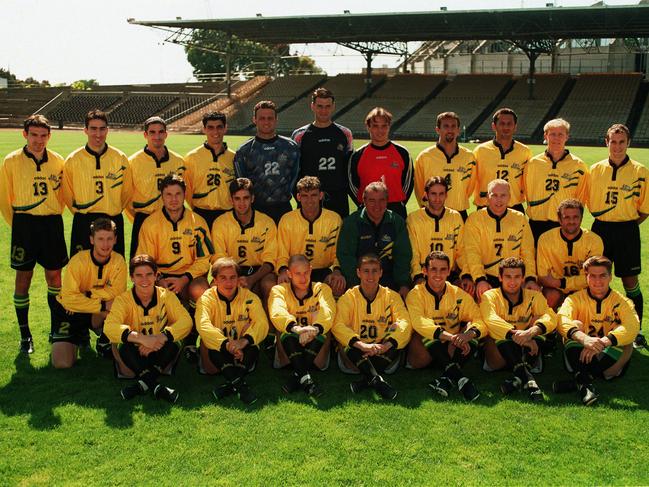Landmark players’ study finds Australia must recreate ‘football culture’ which underpinned Socceroos golden generation
A pioneering new study had identified the crucial role of local clubs and backyard play in producing world class Australian players who can recreate the Socceroos’ ‘golden generation’.

Socceroos
Don't miss out on the headlines from Socceroos. Followed categories will be added to My News.
A “football culture” akin to the one that underpinned the golden generation talent factory must be inventively recreated for Australia to produce world-class players again, according to a forensic study by the players’ union.
Paul Okon, John Aloisi, Josip Skoko, Carl Valeri and Nathan Burns were among the 17 players from six states and territories interviewed — all born between 1977 and 1988 — for the pioneering study titled “Culture Amplifies Talent: Building a Framework for Golden Generations”.
Australia will struggle to produce “world class” players via merely a curriculum, pinpointing unstructured play as critical to their development with players spending more than twice as much time from the ages of 5-18 engaging in informal play than in formal team training.

The study identifies investment in infrastructure that can facilitate the volume of fun activities the likes of Mark Viduka, Harry Kewell, Tim Cahill, Mark Bresciano and Vince Grella chalked up at their local clubs or in backyards.
“As we assessed the golden generation, it evolved as a case study for the decisive role that an immersive culture plays in sporting success,” said PFA chief executive John Didulica, whose brother Joey was also interviewed.
“For far too long we have viewed talent development through the narrow lens of a curriculum or a coaching methodology. It is clear from the research that what we need to expand our thinking and promote the important role and interdependence of the game’s different constituent parts: family, community clubs, professional leagues, state federations and media partners. They are all critical to helping world class talent emerge.

“Importantly, we cannot lose sight of the focus of our mission – the young player. It is not enough to re-imagine our football culture, we must remake it in such a way that generation after generation wishes to immerse themselves in it.”
Aloisi, the only Australian to play in the English, Italian and Spanish top flight leagues while scoring 27 times in 55 games for the Socceroos, said this research was crucial to the game’s future.
“As a player and a coach over 20 years, I’ve been witness to so many discussions within the football community about these sorts of issues. It’s great to see this quality of work being done,” Aloisi said.
“The evidence confirms in many respects what we intuitively suspect, but the important aspect it actually now provides a framework for us to ensure we can create the conditions needed to develop world class players.
“The report shows that the process goes much deeper than just coaching, facilities and style of play but to building a deep culture and connection to the sport we all love.”

The study, done in conjunction with Victoria University, identified six key themes among the golden generation:
- Passion/falling in love with the game
- Family support and sacrifices
- Mentality and work ethic
- Environment of regularly kicking a ball
- Practice (free play plus structured training)
- Pathway and playing up an age group
It contrasted the club environments, with the older generations tending to develop through one junior club, many of which were formed by the post-war European migrants, while the current crop tended to be transient, changing clubs from age 10.
The study found that the “golden generation” started playing with clubs from age five, while developing a passion for the game through “fun” activities and unstructured play.
The paper recommends that Australia should not limit its scope to what’s worked here in the past or elsewhere presently, but “consider new, innovative ways” of progressing.
READ MORE:
Melbourne City’s Connor Metcalfe says FFA Cup final win can give their A-League title hopes a boost
The report states: “The stars aligned to create special conditions and players. We have not failed since then, we have regressed to the mean.
“There is little doubt the golden generation existed in a cultural environment which was set up to produce internationally competitive players.”
While most of the golden generation emanated from middle-class European backgrounds, they were also involved in other sports like Aussie rules, NRL, cricket and basketball for longer (average age 14) than the current crop, the study found.
It also found that all debuted for the first-team by age 16.

It continues the PFA’s pioneering work in Australian football, headlined by the Australian Premier League research document in 2004, which formed a framework for the A-League, which kicked off in 2005.
